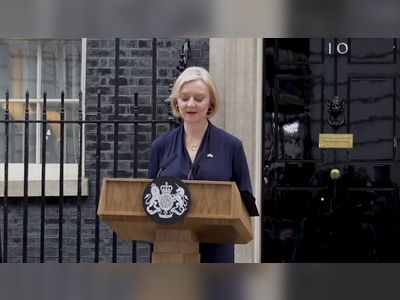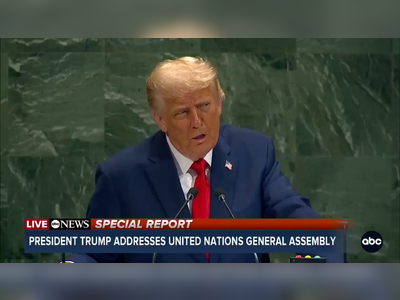WhatsApp is rolling out a feature that looks a lot like Telegram.
A new beta update introduces usernames in WhatsApp, allowing users to chat without phone numbers while adding new privacy and security measures
A recent beta update released in recent days presents a new feature that will allow users to start a conversation using a unique username, without a phone number and without the need to save a contact.
At the same time, an additional security layer will be introduced, limiting who can send the first message.
Does this sound like Telegram?
WhatsApp is adopting a model long familiar on Telegram: for the first time since its launch, the popular messaging app owned by Meta will allow users to be searched by username instead of phone number.
After reports of its development, a new beta update (version 2.25.24.22) for Android users has now revealed the feature, which is expected to roll out to all users in a future update.
The change is expected to fundamentally transform the way people connect through the app—similar to practices long used in Telegram and other social networks—while preserving WhatsApp’s established security and encryption mechanisms.
In other words, users will no longer need to share their phone number in order to initiate a conversation.
The option to choose a username will eliminate the need to display a phone number and instead provide an identifier.
WhatsApp, however, is setting several rules: the username must be unique, contain at least one letter, meet a minimum length, and follow a defined syntactic structure.
The goal is to prevent impersonation, confusion between accounts, and overly similar identifiers.
Once a username is chosen, users may share it with others—or not—and remain identifiable only to those who know the exact username.
However, accounts cannot be hidden from search results, meaning that any user who creates a username can be located through it.
The main innovation lies in the user interface: within the regular chat tab, a new action button will allow access to a contact list and the option to type a username into a dedicated search field.
Even if the sought-after person does not appear in the contact list, WhatsApp will scan its database and attempt to locate them.
If a match is found, the account will appear in the search results, including name and profile picture (if set to public).
From there, users can immediately begin a conversation without adding the contact or saving their phone number.
The chat will open just like any regular conversation, supporting voice messages, media, documents, and more.
It will appear in the chat tab and remain with full history.
WhatsApp emphasizes that all conversations through this mechanism will continue to be end-to-end encrypted, exactly like regular chats.
To protect against harassment or unwanted contact, WhatsApp is offering an additional security layer called “Username Key”—a personal code required to send the first message to a specific user.
This means that even if someone knows your username, they cannot contact you without also having your code.
Although optional, this feature provides complete control over interactions with external parties, similar to privacy settings on Facebook or Instagram.
The username option will not be mandatory.
Users who prefer to continue with their phone number may still use WhatsApp exactly as before.
In parallel, to prevent spam, WhatsApp will implement a system for detecting abnormal behavior.
Users will be able to report accounts that send spam messages, and those identified as violating terms of service will be blocked or restricted.
When will this happen?
The feature has not yet been officially launched, but its appearance in the public beta indicates that it is already in advanced stages of development and testing.
It is likely to reach the general public in one of the upcoming updates in the coming months.
At the same time, an additional security layer will be introduced, limiting who can send the first message.
Does this sound like Telegram?
WhatsApp is adopting a model long familiar on Telegram: for the first time since its launch, the popular messaging app owned by Meta will allow users to be searched by username instead of phone number.
After reports of its development, a new beta update (version 2.25.24.22) for Android users has now revealed the feature, which is expected to roll out to all users in a future update.
The change is expected to fundamentally transform the way people connect through the app—similar to practices long used in Telegram and other social networks—while preserving WhatsApp’s established security and encryption mechanisms.
In other words, users will no longer need to share their phone number in order to initiate a conversation.
The option to choose a username will eliminate the need to display a phone number and instead provide an identifier.
WhatsApp, however, is setting several rules: the username must be unique, contain at least one letter, meet a minimum length, and follow a defined syntactic structure.
The goal is to prevent impersonation, confusion between accounts, and overly similar identifiers.
Once a username is chosen, users may share it with others—or not—and remain identifiable only to those who know the exact username.
However, accounts cannot be hidden from search results, meaning that any user who creates a username can be located through it.
The main innovation lies in the user interface: within the regular chat tab, a new action button will allow access to a contact list and the option to type a username into a dedicated search field.
Even if the sought-after person does not appear in the contact list, WhatsApp will scan its database and attempt to locate them.
If a match is found, the account will appear in the search results, including name and profile picture (if set to public).
From there, users can immediately begin a conversation without adding the contact or saving their phone number.
The chat will open just like any regular conversation, supporting voice messages, media, documents, and more.
It will appear in the chat tab and remain with full history.
WhatsApp emphasizes that all conversations through this mechanism will continue to be end-to-end encrypted, exactly like regular chats.
To protect against harassment or unwanted contact, WhatsApp is offering an additional security layer called “Username Key”—a personal code required to send the first message to a specific user.
This means that even if someone knows your username, they cannot contact you without also having your code.
Although optional, this feature provides complete control over interactions with external parties, similar to privacy settings on Facebook or Instagram.
The username option will not be mandatory.
Users who prefer to continue with their phone number may still use WhatsApp exactly as before.
In parallel, to prevent spam, WhatsApp will implement a system for detecting abnormal behavior.
Users will be able to report accounts that send spam messages, and those identified as violating terms of service will be blocked or restricted.
When will this happen?
The feature has not yet been officially launched, but its appearance in the public beta indicates that it is already in advanced stages of development and testing.
It is likely to reach the general public in one of the upcoming updates in the coming months.









